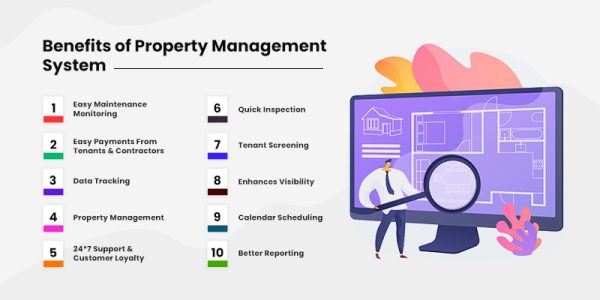
A Step-by-Step Guide to Property Verification
Investing in real estate is a significant decision that requires careful consideration and due diligence. One crucial aspect of this process is property verification, ensuring that the property you are interested in is legally sound and free from any disputes. In this step-by-step guide, we will walk you through the essential steps of property verification to help you make a secure investment.
How to Check Property Documents for selling the property
When preparing to sell a property, it is crucial to thoroughly check and organize all relevant property documents to ensure a smooth and legal transaction. Start by verifying the ownership documents, such as the title deed, which establishes your ownership rights. Additionally, confirm the survey and layout plans to ensure the property boundaries are accurate. Check for any encumbrances or liens on the property by reviewing mortgage documents, if applicable. Obtain and organize property tax receipts and utility bills to demonstrate that all financial obligations are up to date. It’s also important to have clear documentation related to any permissions or approvals obtained for construction or renovations. Lastly, compile any relevant agreements, contracts, or warranties associated with the property. A comprehensive review of these documents will not only facilitate the sale process but also instill confidence in potential buyers regarding the property’s legal standing and condition. Consider seeking professional advice from a real estate attorney or agent to ensure a thorough and accurate assessment of the property documents.
How to Verify Land Title for selling the property
Verifying the land title is a crucial step when selling a property to ensure a transparent and legally sound transaction. Begin by obtaining a copy of the land title deed from the relevant land registry or local government office. Check that the details on the title match the property in question, including accurate boundaries and ownership information. Examine the title for any existing encumbrances, such as mortgages, liens, or easements, which may impact the sale. Confirm that the title is free from legal disputes or pending litigation that could affect the property’s marketability. Additionally, ensure that the title is in the seller’s name and that there are no outstanding taxes or dues associated with the property. Consulting with a qualified real estate attorney or a title company can provide additional assurance and guidance in navigating the intricacies of land title verification, thereby facilitating a smooth and secure property sale process.
How to Examine an Approved Building Plan for selling the property
When preparing to sell a property, a thorough examination of the approved building plan is essential to ensure compliance with local regulations and to provide transparency to potential buyers. Begin by obtaining a copy of the approved building plan from the relevant municipal or planning authority. Review the plan to verify that the construction aligns with the approved design, including the dimensions, layout, and any specified building codes. Confirm that all necessary permits and clearances, such as environmental approvals and zoning requirements, are in place. Pay attention to any modifications or deviations from the approved plan and ensure that they were authorized through proper channels. This examination not only ensures legal compliance but also instills confidence in buyers regarding the property’s adherence to safety and regulatory standards. Consider seeking the expertise of a professional architect or building inspector to assist in the meticulous review of the approved building plan for a comprehensive assessment.
Read More About Are You Struggling to Sell Your Property ?
How to Check for Encroachments at selling the property time
Checking for encroachments is a crucial step when selling a property to avoid legal complications and ensure a smooth transaction. Start by physically inspecting the property boundaries to identify any signs of encroachment, such as fences, structures, or landscaping that may extend beyond the established limits. Obtain a current land survey from a licensed surveyor to precisely determine the property boundaries and compare the findings with existing structures. Review the property title and survey maps for any recorded easements or agreements that may impact boundaries. Additionally, consult with neighbors to address any potential disputes or discrepancies. Engaging the services of a professional land surveyor or real estate attorney can provide expertise in identifying and resolving encroachment issues, allowing for a clear and legally sound property sale. Addressing encroachments early in the selling process helps mitigate risks and provides assurance to both the seller and potential buyers.
How to Ensure Compliance with Zoning Laws
Ensuring compliance with local zoning laws is paramount for a sound real estate investment. Start by accessing and understanding the specific zoning regulations governing the area, available through municipal planning departments or online resources. Confirm the property’s zoning classification and cross-reference it with the local zoning map to ensure alignment with intended use. Thoroughly grasp the zoning restrictions pertaining to land use, building specifications, setbacks, and other parameters critical for compliance. Check for any variances or special permits that might deviate from standard zoning requirements, ensuring their validity. Regular consultation with local planning authorities can provide valuable insights, and staying informed about potential future zoning changes is crucial. If the complexities of zoning laws pose challenges, consider engaging professionals such as land use attorneys for expert guidance. This meticulous approach ensures that your investment aligns seamlessly with zoning regulations, mitigating the risk of legal complications and optimizing the property’s long-term potential.
How to Property Verification done by a property handling Company
Property verification conducted by a property handling company involves a series of systematic steps to ensure a thorough and secure assessment of a property. The process typically begins with the collection of all relevant documents, such as the title deed, approved building plans, property tax receipts, and any legal agreements associated with the property. The company then conducts a physical inspection, examining the property for any encroachments, structural issues, or deviations from approved plans. Ownership records are meticulously reviewed to confirm clear title and absence of legal encumbrances. Outstanding dues, including property taxes and utility bills, are verified and settled. Collaboration with professional surveyors and legal experts may be employed to confirm boundaries, easements, and regulatory compliance. The findings are compiled into a comprehensive report, offering a detailed overview of the property’s legal and physical status. This thorough property verification process by a property handling company helps build trust and confidence in the transaction, ensuring a smooth and secure property transfer for both sellers and buyers.
Conclusion:
In conclusion, property verification is a meticulous process that demands attention to detail and thorough investigation. Skipping any of the essential steps can expose you to potential risks and legal complications. By following this step-by-step guide, you can ensure that your real estate investment is built on a solid foundation, free from legal encumbrances and disputes. Remember, a secure investment begins with a comprehensive property verification process.
Related Posts
The Best Residential Plots for Sale in Amaravati
The Best Residential Plots for Sale in Amaravati: A Comprehensive Guide Amaravati, the vibrant capital…
Top Locations for CRDA Approved Plots in Amaravathi
Top Locations for CRDA Approved Plots in Amaravathi Choosing the right location for investing in…
Why Invest in CRDA Approved Plots in Amaravathi
Why Invest in CRDA Approved Plots in Amaravathi Investing in CRDA (Capital Region Development Authority)…
How to Create a Tenant-Friendly Property: Tips for Landlords
Title: Why Invest in CRDA Approved Plots in Amaravathi Investing in CRDA (Capital Region Development…
The Role of Technology in Modern Property Management
Streamlining Property Management: The Impact of Technology in Modern Real Estate In the ever-evolving landscape…
Common Challenges in Tenant Management and How to Overcome Them
Common Challenges in Tenant Management and How to Overcome Them Tenant management is a crucial…
Essential Qualities to Look for in a Property Management Company
Essential Qualities to Look for in a Property Management Company Choosing the right property management…
Tips for Building a Strong Community in Multi-Family Rental Properties
10 Proven Strategies for Cultivating a Thriving Community in Multi-Family Rental Properties In the realm…
Best Practices for Conducting Background Checks on Potential Tenants
Ensuring Reliable Tenants: Best Practices for Background Checks In the realm of property management, securing…
Integrating Advanced Tech in Property Management
Integrating Advanced Technology into Property Management Services for Enhanced Efficiency In an era defined by…
Cost-Effective Solutions for Managing Maintenance in Property Management Services
Cost-Effective Solutions for Managing Maintenance in Property Management Services. In the realm of property management…
The Role of Property Management in Community Living
The Role of Property Management in Community Living Property management plays a pivotal role in…
Effective Tenant Retention Strategies
Effective Tenant Retention Strategies Effective tenant retention strategies are essential for landlords and property…
Benefits of Professional Property Management for Overseas Investors.
Benefits of Professional Property Management for Overseas Investors. Professional property management offers invaluable benefits for overseas…
The Future of Real Estate: Trends in Property Management
The Future of Real Estate: Trends in Property Management The future of real estate holds…

















